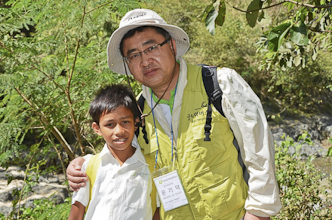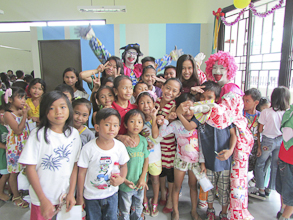 About
Projects
Stories
Work with Us
Donate
About
Projects
Stories
Work with Us
Donate
 ☰
☰
Communities are empowered by making them partners in carrying out GNIP programs. GNIP also builds linkages with organizations that share the same vision, mission, goals, and advocacy.
GNIP establishes and maintains partnerships with donors, partner agencies, nongovernmental organizations, volunteer groups, professionals, students, local government units, schools, and the communities where GNIP operates. GNIP also builds linkages with organizations that share the same vision, mission, goals, and advocacy.
In 2013, GNIP officially became a member of the Child Rights Network, an alliance of 20 child-focused nongovernment organizations and 1 government office advocating for the enactment of policies that will protect and fulfil the rights of Filipino children. One of the major activities conducted by GNIP with CRN is the Forum on Universal Birth Registration.


The membership with CRN is an addition to GNIP’s present memberships with other networks, such as the Philippine International Non-Governmental Organization Network (PINGON) and the National Council of Social Development (NCSD). PINGON is a network of NGOs operating in the Philippines, with which GNIP coordinates its implementation of disaster response and emergency relief programs. NCSD is a network composed of development agencies and organizations undertaking capacity building, advocacy, and social mobilization activities that will influence a change in national policies and development programs.
The Community Development Committee (CDC) is GNIP’s partner in bringing significant changes into the community. It is immediately organized once GNIP inks a deal with a barangay or municipal government for the implementation of community development projects. GNIP supports the CDCs through transportation and meals, and provision of office structure.


Meanwhile, in order for this committee to effectively carry out these projects, the members should fully understand that all of them are capable in doing so. This is done through trainings on leadership, financial management, and project evaluation. Aside from being a partner in GNIP’s projects, the CDC also conducts quarterly monitoring of GNIP’s sponsored children.
On November 13-15, 2013, GNIP held its first annual CDC conference at Sequoia Hotel in Quezon City. It was attended by 36 CDC officers from all CDP areas. The conference highlighted the three major focus of GNIP for 2014: child protection, income-generating projects, and disaster management.
The CDC annual conference has done its share of renewing the members’ commitment to their respective CDCs. GNIP remains determined to achieve one important goal, which is to keep CDC members active and involved in the transformation of their communities.